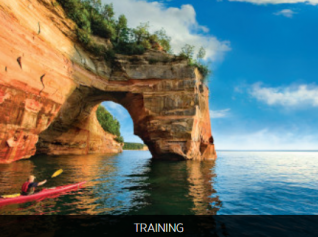responsibletravel.com removes orphanage voluntourism trips from its site

Volunteers, they say, are too often part of the problem rather than part of the solution
responsibletravel.com, has announced that it has removed from its website 10 volunteering trips that send volunteers to work in orphanages around the world.
The trips have been temporarily removed whilst responsibletravel.com works with industry leaders to develop a set of best practice guidelines for trips that involve volunteering with children. The company hopes that the independent nature of these guidelines will help sustain the exemplary operators while remove those that may potentially tarnish the sector.
With many students across the UK considering volunteer travel and gap year options as they await A-level results, responsibletravel.com is calling for travellers and those from the industry to join the debate at http://blog.responsibletravel.com/orphanage-tourism . Leave a comment or spread the word via social media by ‘liking’ or tweeting the page using the hashtag #orphanagevolunteering.
Justin Francis, managing director, responsibletravel.com said:
"It’s time to clean up this sector. Too often volunteer trips to orphanages are becoming part of the problem rather than part of the solution. After a great deal of thought, research and consultation we have taken the difficult decision to temporarily remove all volunteering trips to orphanages from responsibletravel.com whilst we work on a set of best practice guidelines for the sector."
"It is crucial that we only market volunteer trips in which we have100% trust. As a community of responsible operators, we must be committed to leading the way and raising standards in this industry."
Some of the issues that concern responsibletravel.com include:
Importance of family setting vs. residential care
There is overwhelming evidence to show the detrimental impacts of residential care on the physical and emotional well being of children (UNICEF). The UN Convention of Rights of Children states that the family must be afforded the necessary assistance so that it can assume its responsibilities (of caring for children). Residential care should be the last resort.
Fuelling demand for orphans
Inadvertently, well intentioned volunteers are fuelling the demand for orphans. In Cambodia 74% of children in orphanages are not orphans. Almost all orphanages are funded by overseas donors, many of whom turn to volunteer tourism and train children to perform and attract donors http://orphanages.no/). Watch the Al Jazeera documentary on ‘fake’ orphans here.
Volunteers are therefore creating a surge in orphanages, because parents are tempted to give up their children in response to the western ideal of education and upbringing. For example, with a population of less than 100,000, the town of Siem Reap, gateway to the famous ruins of Angkor Wat has 35 orphanages. One even parades children late at night behind placards reading ‘Support Our Orphans’ as visitors drink and dine.
This UN report from West Africa identifies the need to protect children from ‘Orphan Dealers.’
"A January 2009 study by the Social Welfare Department – responsible for children’s welfare and supervising orphanages – showed that up to 90 percent of the estimated 4,500 children in orphanages in Ghana are not orphans and 140 of the 148 orphanages around the country are un-licensed."
Emotional disturbance to children
Reseach from South Africa (‘AIDS orphan tourism: A threat to young children in residential care’) reveals the negative impacts of volunteers on the children.
"Institutionalised children will tend to manifest indiscriminate affection towards volunteers. After a few days or weeks, this attachment is broken when the volunteer leaves and a new attachment forms when the next volunteer arrives…repeated disruptions in attachment are extremely disturbing for children, especially very young children".
Very few tourists are qualified to interact with traumatised or vulnerable children. Most volunteers do not have these skills or the training required.
This report from the BBC about Bali found that "As tourism has boomed in Bali, it has had a strange side-effect, doubling the number of orphanages on the island in 20 years. Tourists’ donations keep the orphanages going – but some are effectively rackets, exploiting children and holidaymakers alike".
Displacing local staff from jobs
Volunteers are unintentionally crowding local people out of their jobs. This Human Sciences Research Council report concluded that … "there is a real danger of voluntourists crowding out local workers, especially when people are prepared to pay for the privilege to volunteer."
Valere Tjolle
SUSTAINABLE/REAL TOURISM INFORMATION & OFFERS HERE
 United Kingdom
United Kingdom United States
United States Asia Pacific
Asia Pacific












































EU airports bring back 100ml liquid rule
British Airways passengers endure 11-hour 'flight to nowhere'
CLIA: Anti-cruise demos could cause itinerary changes in Europe
Co-pilot faints, easyJet flight issues ‘red alert’
Dozens fall ill in P&O Cruises ship outbreak